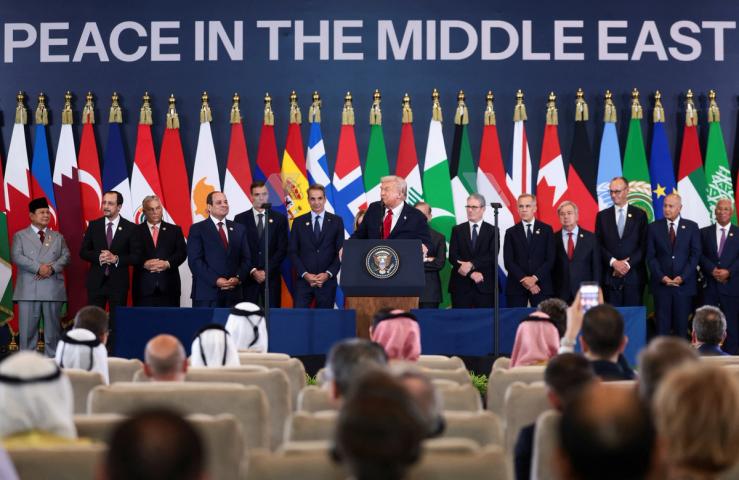Faisal’s view
The mood in the Arab world is one of cautious optimism, days after US President Donald Trump pulled off what many are calling a historic diplomatic feat. The horrors of Gaza, at least for now, have been paused. Israeli hostages are home. And a bold peace initiative, personally chaired by Trump, has garnered international support with the ambitious goal of ending the Palestinian-Israeli conflict.
For a region long accustomed to disappointment, this moment does feel different, perhaps because everything about it is unusual — including Trump’s leadership style. Scroll Arab social media or tune into regional channels and you’ll find a striking shift in tone. Gone is the cynicism that clouded the Biden era. In its place is admiration for “Deal-Maker Donald” and “Triumphant Trump.”
Backed by what has proven to be a formidable negotiating team and a coalition of regional allies — Saudi Arabia, Türkiye, Qatar, Jordan, and Egypt among others — Trump has positioned himself as the architect of a new Middle East. By chairing the peace council, he is signaling that the effort will be strategic, inclusive, and actionable, not merely ceremonial.
Palestinian officials are ready to engage. The Palestinian Authority’s deputy foreign minister told Arab News (the paper I edit) that they are committed to reform, and to working with the US and Arab partners. The future Palestinian state can’t be built in isolation, and it will require a fresh, capable, and trusted leadership.
But there remains one persistent obstacle to peace: Israeli Prime Minister Benjamin Netanyahu.
A prominent Arab leader told a group of journalists, including me, that during a meeting at the White House earlier this year, he said to Trump: “If anyone will let you down, Mr. President, it will not be the Arabs — it will be Netanyahu.”
Trump isn’t naive and knows that Netanyahu has incentives to preserve electoral support by remaining a wartime leader. Even Trump’s son-in-law, Jared Kushner, wrote in his recently publiished memoirs that Netanyahu duped the administration back in 2020. The prime minister is already undermining the peace framework: Just days after Hamas released the hostages, Israel imposed new restrictions on aid entering Gaza, blaming Hamas for delaying the return of the remains of deceased hostages. Washington dismissed the charge, understanding the complexity of the operation given the scale of destruction in Gaza.
Other violations, like the Israel army’s killing of six Palestinian civilians inspecting their homes after the ceasefire was announced, aren’t anomalies. They are patterns. It’s likely that Netanyahu will continue to use brutal force as a distraction. He faces both domestic and international pressures: a corruption case in Israel and a warrant from the International Criminal Court. Within Israel, some see him as a hero, others as too soft on terror, and a third camp — including former Prime Minister Ehud Olmert — accuses him of war crimes, as he recently told Arab News.
As Netanyahu weighs his options, Trump must also consider how to deal with his partner in Israel. If the president’s council is to deliver, it has to move beyond the conference halls of an Egyptian resort town and enforce access to immediate humanitarian intervention. Aid, medicine, and shelter must flow freely to Palestinians. Winter is coming, and with it, the risk of disease, displacement, and despair. By restricting aid, Israel is not just endangering lives — it is jeopardizing Washington’s credibility.
President Trump has made a bold move, and Arab nations are ready to be partners in peace. He has earned the admiration of many. But for his triumph to be complete, he must confront the one actor capable of unraveling it all, or face the consequences of letting history repeat itself.
Faisal J. Abbas is an award-winning journalist and Editor-in-Chief of Arab News.
Notable
- Eight expert views on Trump’s peace plan for Gaza are included in this Oct. 13, 2025, roundup by the Washington think tank Brookings Institution.
- Qatar-affiliated think tank Arab Center Washington DC is more critical of the summit, which some of its experts said lacks the specifics necessary for a lasting peace.



